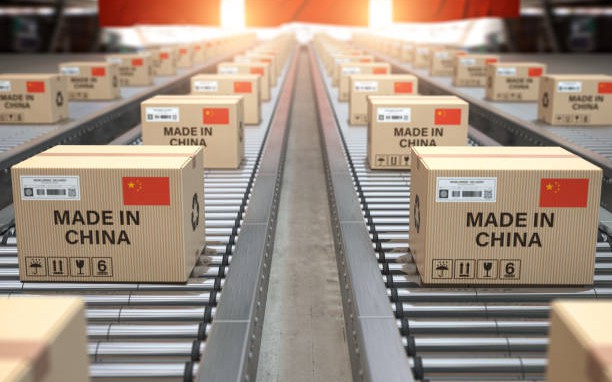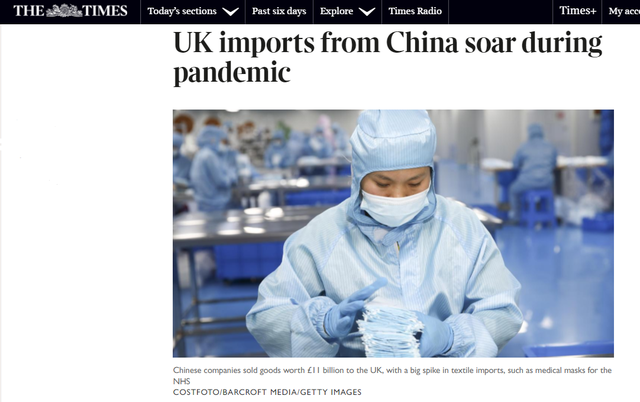
How China bucked the trend to become British biggest source of imports?
In the second quarter of this year, China became the largest source of UK imports for the first time, accounting for one in every seven pounds of goods imported, according to data released by the Office of National Statistics (ONS) a few days ago. Chinese companies have exported 11 billion pounds worth of goods to the UK, with a surge in textiles, including medical masks for the NATIONAL Health Service and electronics such as home computers for telecommuting.

In the second quarter of this year, China became the UK’s largest source of imports for the first time, mainly due to the following three reasons:
First, Chinese epidemic control has achieved significant results in the second quarter. The epidemic in many European countries ravaged and affected the industrial and supply chain. Major trading partners of the UK, such as Germany, have a lockdown, which has greatly affected trade flows. Data shows that in the second quarter, the exports and imports of UK vehicles fell sharply. The production of transportation equipment of Britain’s largest EU partners such as Germany has also declined.
Second, China has the production advantage of the whole industry chain, which other countries do not have. According to statistics from United Nations agencies, China is the only country that has all the industrial categories in the United Nations Industrial Classification. Compared with other countries, Chinese advantages in the whole industry chain can help China resume work and production quickly.
The rise of the “Housing economy” created favorable conditions for Britain to import electronic equipment from China in the second quarter. Take smartphones as an example. In 2019, 46.9% of global mobile phone exports came from China. Many of the world’s leading smartphone brands are located in China or have manufacturing plants in China.
The third is the influence of “Brexit”. The UK is still negotiating with the EU on related matters. The news of Brexit also affected the trade exchanges between the UK and Europe and other traditional trading partners. This negotiating matter means that in the short term, there will be re-adjustment of the supply and industrial chain division of labor, which also makes the United Kingdom urgently need to expand its import sources from other countries.



